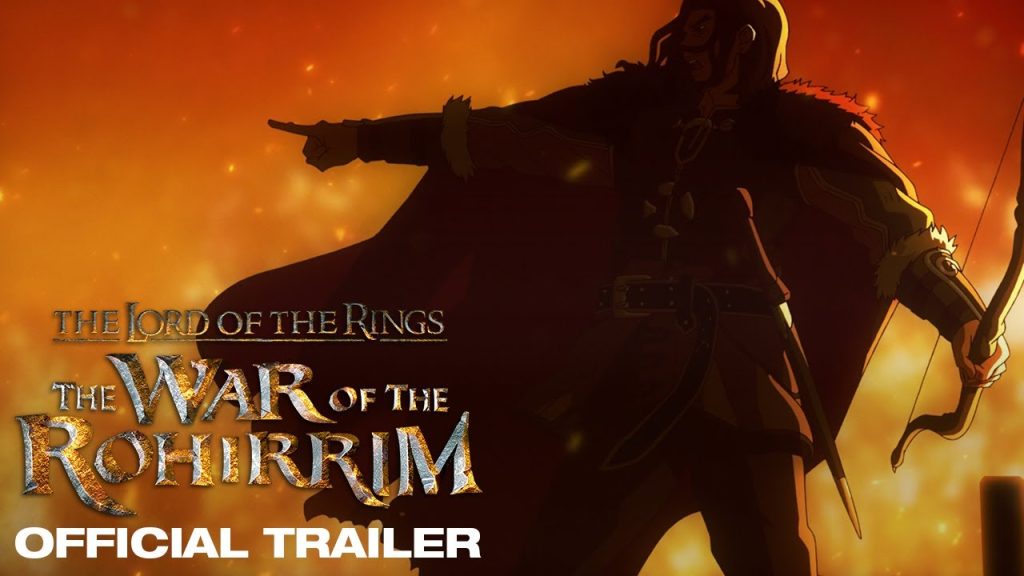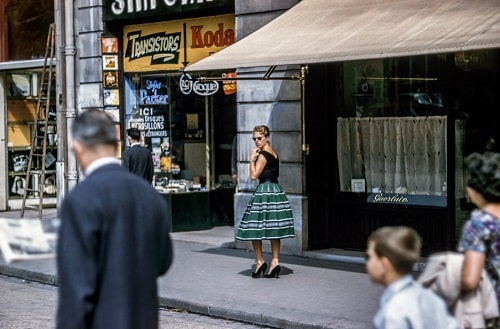As the sun sets later and the days grow warmer, there’s no better time to dive into the world of classic summer rom-coms. These films, known for their lighthearted charm and swoon-worthy endings, have a special way of capturing the essence of summer love. From unexpected encounters to laughter-filled adventures, they remind us of the joys of new relationships and the warmth of the season.
Each summer, audiences find themselves drawn back to these heartwarming stories that promise not only entertainment but also a delightful escape from the everyday. Whether it’s the sandy beaches, the quaint small towns, or bustling city streets, the settings of these films are as enchanting as the narratives themselves. They offer a perfect backdrop for characters to find love, often where and when they least expect it.
So grab your favorite snack and settle in; it’s time to revisit some of the most beloved rom-coms that continue to capture hearts year after year. With their perfect blend of humor, romance, and happy endings, these films are sure to add a sparkle to your summer days.
Grease (1978)
Overview and Charm
“Grease,” set against the vibrant backdrop of the 1950s, remains one of the most beloved musical rom coms of all time. The film, directed by Randal Kleiser and starring John Travolta and Olivia Newton-John, traverses the complexities and exhilaration of high school love, friendship, and rebellion. Its energetic dance numbers, catchy soundtrack, and timeless appeal make it a staple in the genre of summer romantic comedies.
Plot and Character Dynamics
The story revolves around the summer romance between Danny Zuko, a greaser with a tough exterior, and Sandy Olsson, the new girl in town with a sweet and innocent demeanor. Their unexpected reunion at Rydell High sets the scene for a series of humorous and heartwarming events that explore themes of identity, peer pressure, and acceptance. The charm of “Grease” lies in its ability to blend humor and romance against the high-energy backdrop of 1950s rock ‘n’ roll.
Iconic Musical Numbers
The film’s standout feature is undoubtedly its music. Songs like “Summer Nights,” “Greased Lightnin’,” and “You’re the One That I Want” not only advance the narrative but have also become cultural landmarks. These performances, coupled with impressive choreography, contribute to the film’s dynamic pacing and entertainment value, ensuring its place in the hearts of audiences across multiple generations.
Cultural Impact and Legacy
Since its release, “Grease” has had a profound impact on popular culture. Its depiction of 1950s Americana offers a nostalgic view that resonates with both people who lived through the era and those who didn’t. The film promotes a message of youthful exuberance and transformation, encapsulated in the memorable transformation of Sandy’s character, which speaks to universal themes of love and personal growth.
Comparison with Contemporary Rom Coms
Compared to modern romantic comedies, “Grease” stands out for its unique setting, memorable music, and vibrant choreography. While contemporary films often focus on more complex or cynical views of romance, “Grease” maintains a simple yet powerful narrative about young love and the societal expectations faced by teenagers, which makes it endearingly straightforward and optimistic.
Enduring Popularity and Appeal
Decades after its original release, “Grease” continues to be celebrated in various adaptations and sing-along versions, evidenced by its frequent revivals in theaters and on television. Its ability to connect with diverse audiences through its relatable plot and charismatic performances is a testament to its status as a quintessential summer movie that captures the essence of first love and youthful spirit in a joyful and entertaining package.
Dirty Dancing (1987)
Following the high-energy and vibrancy of “Grease,” “Dirty Dancing” offers a slightly different take on the summer romance theme, set against the rustic backdrop of a 1960s Catskills resort. This beloved classic combines elements of drama, music, and dance to deliver a story that is as empowering as it is romantic.
Plot and Setting
“Dirty Dancing” centers around Frances “Baby” Houseman, a young woman who spends the summer at a sleepy resort with her family. Her life takes a thrilling turn when she meets Johnny Castle, the resort’s dance instructor. The plot beautifully intertwines themes of first love, individual growth, and social class differences, set to a nostalgia-inducing soundtrack that complements the film’s period setting.
Characters and Performances
Jennifer Grey and Patrick Swayze bring their characters to life with performances that convey deep emotion and genuine chemistry. Grey’s portrayal of Baby is both relatable and inspiring, as she evolves from a naive, idealistic young woman into a strong, confident individual. Swayze’s Johnny is charismatic and complex, embodying a character who is tough on the outside but vulnerable beneath his hardened exterior. Their on-screen partnership is magical, propelling the film to its cult classic status.
Iconic Dance Scenes and Music
One cannot discuss “Dirty Dancing” without mentioning its iconic dance scenes and memorable music. The choreography is stunning, ranging from intimate, sensual dances to exuberant, high-energy numbers. The film’s climax, featuring the now-iconic lift during “(I’ve Had) The Time of My Life,” remains a hallmark of cinematic romance. The soundtrack, with hits like “Hungry Eyes” and “She’s Like the Wind,” not only complements the visual and emotional arcs but has also enjoyed enduring popularity.
Cultural Impact and Legacy
“Dirty Dancing” goes beyond a mere summer love story; it challenged social norms and highlighted issues like class differences and women’s autonomy. The film’s dialogue has seeped into popular culture, with phrases like “Nobody puts Baby in a corner” becoming part of the lexicon. The movie’s influence extends into various mediums, inspiring stage adaptations, television specials, and a loyal fan base that spans generations.
In comparing “Grease” and “Dirty Dancing,” both films offer unique perspectives on young love and societal expectations, yet “Dirty Dancing” introduces a grittier, more introspective look into personal change and fighting for one’s beliefs. It balances its serious themes with uplifting moments and dance sequences that continue to resonate with audiences around the world.
Through its compelling narrative, charismatic performances, and a soundtrack that captures the essence of an era, “Dirty Dancing” remains a timeless piece, encapsulating the spirit of summer romance while addressing broader themes that continue to inspire discussions among viewers, making it a quintessential watch in the pantheon of classic summer rom-coms.
Mystic Pizza (1988)
Following the vivid tales of young love and adoration recounted in both “Grease” and “Dirty Dancing,” “Mystic Pizza” carves its own niche in the world of classic summer romantic comedies with a slightly different spice. The film, directed by Donald Petrie, made its mark with a heartwarming narrative centered around the lives and loves of three young women working at a pizza parlor in Mystic, Connecticut.
Plot and Character Dynamics
“Mystic Pizza” beams with the charm of a small town and the bustling energy of youth. The plot revolves around sisters Kat and Daisy Arujo, and their friend Jojo Barbosa, each navigating their complex love lives and personal dreams. Kat, played by Annabeth Gish, is a studious and ambitious youngster who ends up falling for a married man. Daisy, portrayed by Julia Roberts in one of her breakout roles, is her more free-spirited sister who catches the eyes of a wealthy young man. Jojo, brought to life by Lili Taylor, struggles with her commitment to her fiancé, wanting both love and independence.
The interwoven stories of these three women create a tapestry of emotional depth and relatable dilemmas, highlighted by their bond and the iconic pizza parlor that almost acts as a fourth character in the film. The narrative gracefully addresses themes of love, personal growth, and the pursuit of dreams, making it resonate with a wide audience.
Cultural Impact and Legacy
While not as widely celebrated initially as “Grease” or “Dirty Dancing,” “Mystic Pizza” has gathered a cult following over the years for its realistic portrayal of young women’s lives and the genuine emotional arcs of its characters. The film is credited with launching Julia Roberts’ career, showcasing her potential as a leading actress capable of drawing audiences with her charisma and emotional depth.
Moreover, the movie touches upon issues such and class and ethnic distinctions, subtly woven into the small-town setting and the characters’ interactions. This added layer of social commentary provides “Mystic Pizza” with a richer texture, distinguishing it from other rom-coms of its time.
Performance and Cinematic Elements
The performances in “Mystic Pizza” are compelling and bring a distinct authenticity to the storyline. Annabeth Gish delivers a nuanced portrayal of a young woman caught between her aspirations and her emotions. Julia Roberts shines in her role, bringing a mix of vulnerability and tenacity that makes Daisy a memorable character. Lili Taylor complements the trio with her portrayal of a woman torn between traditional values and her desire for a more liberatd lifestyle.
The direction by Donald Petrie adeptly captures the essence of summer with warm, vibrant cinematography and a soundtrack that complements the emotional and geographical landscapes of the film. The pacing allows the audience to really connect with each character, making their journeys and resolutions feel deserved and satisfying.
Overall Performance
As much as “Mystic Pizza” offers an enriching story and believable character arcs, it stands out for its portrayal of ordinary lives with extraordinary depth. Each performance, the direction, and the script work harmoniously to create a film that is both entertaining and thoughtful. Unlike the grander musical scenes of “Grease” or the stark societal commentaries in “Dirty Dancing,” “Mystic Pizza” delivers a quieter, yet profoundly touching, examination of personal growth and love, tempered with the realities of daily life.
Its legacy, though subtler, is marked by the film’s ability to inspire and entertain viewers, making it a beloved addition to the genre of classic summer rom-coms. Through its vivid depiction of friendship, challenges, and romantic entanglements, “Mystic Pizza” serves as a love letter to the endurance of the human spirit and the complexities of the heart.
The Parent Trap (1998)
Following the introspective explorations of love and personal growth in “Mystic Pizza,” “The Parent Trap” shifts gears towards a lighter, humor-filled take on family and relationships, illustrating a different facet of enduring summer rom coms. This 1998 remake, directed by Nancy Meyers, captures audiences with its ingenious plot and endearing characters, creating a delightful concoction of comedy, mischief, and heartwarming moments.
Plot and Theme
The narrative of “The Parent Trap” revolves around identical twins Annie and Hallie, portrayed by Lindsay Lohan in a standout dual role. Separated at birth and raised by their respective parents on different continents, they accidentally meet at a summer camp. Upon discovering their connection, they concoct a plan to switch places, aiming to reunite their estranged parents. The film navigates themes of family, identity, and the unbreakable bonds of sisterhood, all wrapped in a summery, feel-good atmosphere.
Performances and Character Dynamics
Lindsay Lohan’s performance is a linchpin for the film’s success, effectively distinguishing the unique personalities of Annie and Hallie with finesse and charm. Natasha Richardson and Dennis Quaid, as the twins’ parents, bring a palpable warmth and depth that underscore the film’s themes of reconciliation and love lost and found. The seamless chemistry among the cast adds authenticity to this fictional tale, making the emotive stakes and comedic antics all the more engaging.
Visual and Cinematic Elements
The cinematography in “The Parent Trap” uses vibrant and warm color palettes to enhance the idyllic settings, from the sunny vineyards of California to the sophisticated streets of London. These visuals, combined with a lively soundtrack featuring timeless classics, set a cheerful tone that complements the film’s theme of joy and reunion.
Cultural Impact and Comparison
Unlike “Mystic Pizza,” which delved into deeper social and personal themes, “The Parent. Trap” opts for a more familiar romantic comedy setup with a focus on familial love and playful deception. Its impact lies in its ability to blend humor with emotive storytelling, resonating with both younger audiences and adults. The film reinvigorated the genre by showcasing how classic plots could be refreshed and updated for contemporary viewers, maintaining its popularity over the years.
Reception and Legacy
Critically acclaimed for its clever script and standout performances, particularly by Lohan, “The Parent Trap” has become a classic in its own right. It’s celebrated not just for its storytelling but also for its ability to evoke nostalgia and provide a heartwarming cinematic experience. The film’s success paved the way for a new generation to appreciate the charm of summer rom coms with happy endings, solidifying its place in the pantheon of feel-good summer movies.
“The Parent Trap” offers a unique blend of humor, charm, and tender moments. It stands distinctively among summer romantic comedies, charming its way into the hearts of viewers with its optimistic and spirited take on love and family.
The Longest Yard (2005)
Transitioning from the lighthearted and whimsical tales of parent-trap mischief and heartfelt romances in “The Parent Trap,” “The Longest Yard” introduces a twist as it mixes the elements of comedy with a sports-centered narrative. Unlike the conventional romantic comedies of summer, this film revolves around a prison football match, yet surprisingly upholds the tradition of delivering a feel-good experience.
Storyline and Character Dynamics
“The Longest Yard” stars Adam Sandler as Paul Crewe, a former NFL player who lands in jail after a series of mishaps. Inside, he is coerced by the warden to form a football team of inmates to take on the guards. The narrative cleverly weaves themes of redemption, camaraderie, and resilience, all seasoned with Sandler’s trademark humor. Burt Reynolds, who featured in the original 1974 movie, appears as Coach Nate Scarborough, enhancing the film with a nostalgic flair while mentoring the group of misfits.
Performance and Critical Reception
Adam Sandler delivers a performance that balances comedy with a touch of drama, navigating his character’s flawed yet relatable personality. Chris Rock, as Caretaker, provides the comedic relief essential in maintaining the film’s lighter tone amidst its rough setting. The ensemble of inmates, each bringing their unique quirks to the team, contributes significantly to the humor and heart of the movie.
Critically, “The Longest Yard” received mixed reviews. However, it was lauded for its ability to entertain and engage audiences, proving successful at the box office. Critics pointed out the film’s ability to blend slapstick comedy and serious moments without losing its appeal.
Visual and Emotional Appeal
Visually, the film captures the gritty essence of a prison environment while infusing it with vibrant scenes of football action. The game sequences are choreographed with intensity, skillfully balancing the underdog team’s struggles and triumphs. Emotionally, the film tugs at the heartstrings when the inmates band together, transforming their individual despair into collective hope.
“The Longest Yard” manages to turn a story set in a correctional facility into a source of inspiration and laughter, proving that even the most unconventional settings can set the stage for classic summer entertainment. This film may stray from the traditional paths of rom-coms, but it holds onto the core element of delivering joy and a satisfying conclusion.
Final thoughts on summer Rom-Coms
Exploring these classic summer rom-coms reveals just how diverse and emotionally engaging the genre can be. Whether it’s the nostalgic vibes of “Grease,” the heartfelt moments in “Dirty Dancing,” or the unique blend of humor and sports in “The Longest Yard,” each film offers its own brand of charm and feel-good entertainment. They remind us why summer is the perfect backdrop for stories of love, laughter, and new beginnings. So grab some popcorn and let these timeless movies transport you to sunny days filled with endless possibilities.



 RELATED POSTS
RELATED POSTS





0 Comments